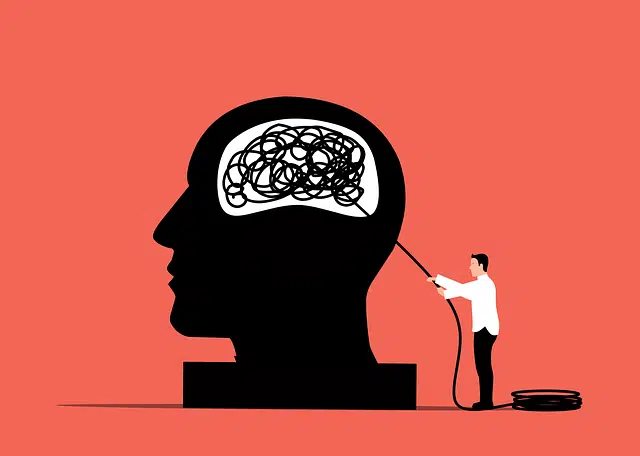
Neurosis is a symptom of a mental disorder.
The concept of neurosis refers to a condition in the nervous system that causes consequences in a person's management of their emotions , which leads them to develop a pathology that prevents them from creating empathy with the environment.
William Cullen , a chemist and doctor born in Lanarkshire ( Scotland ), was the one who coined the term in the 18th century , observing that it encompassed the symptoms of sensory disorders caused by a disease of the nervous system.
Neurosis according to Freud
As defined by Sigmund Freud , normal behavior is that which allows a person to enjoy mental health; That is to say, the person has a conscious and active participation in terms of acceptance of their reality, without resorting to denial or other resources to create a reality that is more bearable, and in addition, this individual acts to transform their life objectively and not just imaginatively. A neurotic person, on the other hand, will use denial to avoid facing a life that hurts them or that they don't like.
It is necessary to clarify that there is a double significance of this concept: on the one hand it is called a symptom of different alterations of the psyche related to anxiety ; On the other hand, in colloquial speech it appears as a synonym for a certain nervous state or even as a synonym for obsession .

The person with neurosis has difficulties controlling emotions.
An effect of anxiety
Within the field of psychology , neurosis is described as an imbalance of the mind caused by anxiety and that occurs without organic damage . The way it manifests itself is through maladaptive or repetitive behaviors whose purpose is to reduce stress.
As explained by specialists, human beings protect themselves from anxiety through various defense mechanisms , including denial , displacement and repression . That is to say that through them, the psychic structure of an individual compensates for excessive anguish; Therefore, in order to reduce the stress that a certain situation or feeling generates, the neurotic tends to repeat certain behaviors constantly.
A person who suffers from neurosis has an unhealthy way of acting, he is unable to coldly analyze his environment and look for solutions, so he stays spinning in a circle and resorts to denial to not accept what disturbs him.
Over the years the concept of neurosis has fallen into disuse both in clinical psychology and in psychiatry; and today experts prefer to refer to different types of disorders (anxiety, dissociative, depressive, etc.) that encompass problems such as phobias , multiple personality , cyclothymia and insomnia , among many others.
Neurosis as a social disorder
For a patient with this disorder to accept that they suffer from it is a very complicated task, in many cases they do not succeed, and possibly the reason for this is that even today in our societies it is frowned upon for a person to turn to a psychologist in seek help. Given these complications that can make the life of a neurotic torturous, institutions have been created that keep the identity of their patients anonymous, one of them is Neurotics Anonymous .
Some specialists consider this disorder as a social illness, since the consequences of the actions of a neurotic person can affect the environment that surrounds them, and over the years the number of people who suffer from it has been increasing. affecting cities, nations and entire regions directly.
Different answers
In each patient, the responses to environmental stimuli are different, in general they vary according to the degree of progression of the disorder and can vary throughout the life of an individual, for example: a young boy who manifests a behavior very different from that of his peers could be a potential neurotic adult. If the disease is diagnosed in childhood, its causes may be school phobia, stuttering, hyperactivity , anorexia , or even autism (the most severe cases). If the patient is in the stage of adolescence, the disease will manifest through peaks of depression, addictions, illegal actions, or suicide.
The fundamental characteristics of neurotic people are suffering due to lack of affection, feelings of guilt, anxiety, fear; and they usually express it by self-harming in various ways. For this reason, many times a person who is diagnosed with anxiety or stress actually suffers from neurosis.
Methods for treating neurosis
There are many ways to treat this disorder, the most commonly used form is psychotherapy , which is based on exchanges through dialogue between patient and psychotherapist, where the latter will try to help the patient modify their emotional behavior, seeking to eliminate these psychological symptoms. .
Some of the therapies that serve this purpose are self-criticism therapy (in the sessions the patient seeks to know himself, discover the origin of his neurosis and what things he can do to be better), Gestalt therapy (in It analyzes experiences based on emotions and a figure that expresses several layers, reality, what we see and think), behavioral therapy (working precisely on the behaviors that are going to be modified and trying to eliminate them through of that change the undesirable behavior through of three methods: desensitization, saturation and aversive conditioning) and group therapy (they seek to improve relationships between people, motivating sincerity in feelings and collective work, trust in other people can be essential to accept the neurosis).
